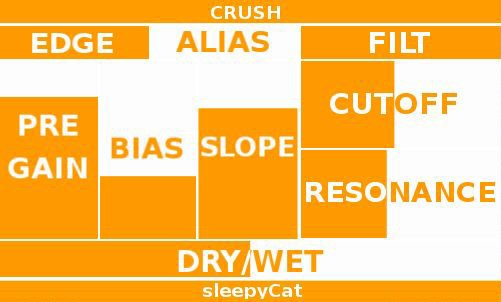
CRUSH algorithmically models a phenomenon common in class-B amplifiers called crossover distortion.
This form of distortion produces a very unique, crunchy sound that has been noted as a characteristic of class-B tube amplifiers for years. In analog, the effect occurs because of a slight inaccuracy in the biasing of amplifier tubes, which leads to a lag in the tubes conducting signal to the output. The resultant signal is heavily attenuated around zero crossings.
An unexpected side effect of the method used to produce crossover distortion here is that, when a physically impossible bias value is given to the algorithm it produces a distortion much more similar to that of a 12-AX7 preamplifier tube. I have no mathematical explanation for this behavior, though it make logical sense on examination of the algorithm.
Numeric values were intentionally left off of the GUI for Crush to encourage a more traditional, listening-based approach to use of the plug-in. The GUI design was inspired by Piet Mondrian’s famous Tableau I.